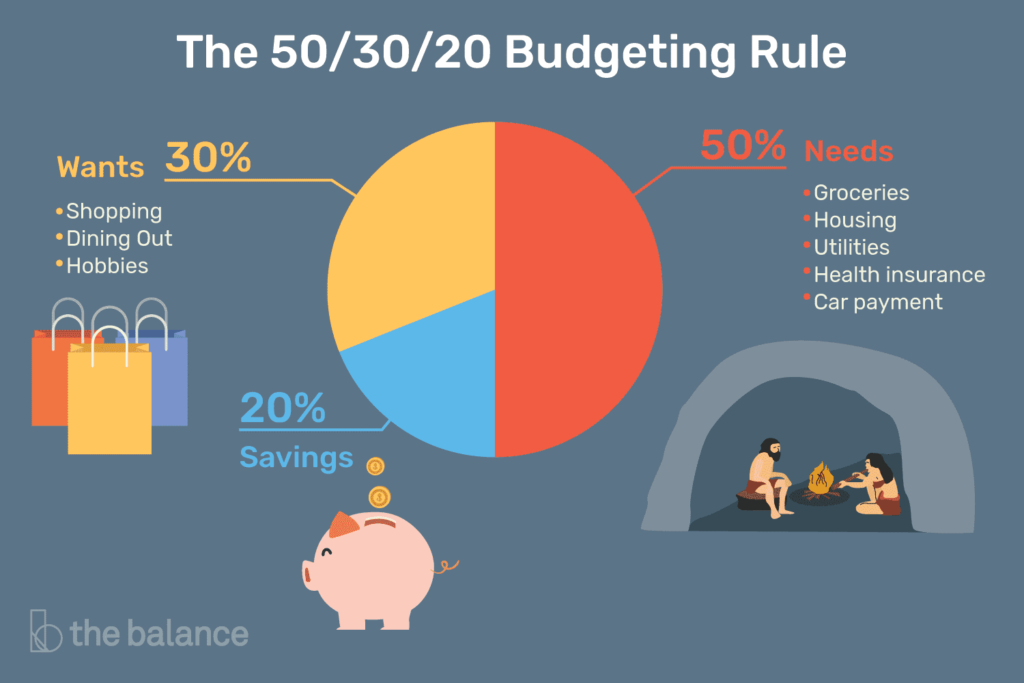Are you tired of constantly overspending on groceries and eating out? Look no further! In this article, we will provide you with 14 golden rules to help you better manage your food budget. By following these simple yet effective tips, you will not only save money, but also make smarter choices when it comes to your meals. So, grab a pen and paper and get ready to take control of your finances while still enjoying delicious food.
Plan your meals
Create a weekly meal plan
Planning your meals ahead of time is a key strategy to save money on food. By creating a weekly meal plan, you can have a clear idea of what you’ll be eating throughout the week and avoid unnecessary trips to the grocery store. Take some time each week to sit down and plan out your meals, considering breakfast, lunch, dinner, and snacks. Not only will this help you stay organized, but it will also prevent you from making last-minute, impulsive food purchases.
Consider your schedule and preferences
When creating your meal plan, it’s important to consider your schedule and personal preferences. Take into account any commitments or events that may affect your meals. For example, if you have a busy workweek, you may want to plan for quick and easy meals. Additionally, consider your family’s likes and dislikes to ensure that everyone will enjoy the meals you have planned. By taking these factors into consideration, you can create a meal plan that is both convenient and enjoyable for you and your family.
Include versatile ingredients in your plan
To make your meal plan more flexible and cost-effective, include versatile ingredients that can be used in multiple dishes. This not only reduces food waste but also allows you to buy larger quantities of these ingredients, which are often cheaper when purchased in bulk. Some examples of versatile ingredients include grains like rice and quinoa, canned beans, frozen vegetables, and eggs. These ingredients can be used in various recipes, giving you more bang for your buck while still providing a range of flavors and nutrients.
Make a grocery list
Check your pantry and refrigerator
Before heading to the grocery store, take some time to inventory your pantry and refrigerator. This will give you a clear idea of what you already have on hand and what you need to buy. Not only does this help you avoid buying unnecessary duplicates, but it also prevents food from going to waste. Make a note of any staple items that are running low or about to expire and prioritize purchasing those items.
Stick to what you need
When making your grocery list, it’s important to stick to what you actually need. Avoid the temptation to add unnecessary items to your cart, as this can quickly add up and exceed your budget. Be mindful of the meals you have planned and only include the ingredients required to make those meals. By focusing on your specific needs, you can avoid overspending and stay on track with your budget.
Avoid impulsive buying
One of the biggest challenges when grocery shopping is resisting the temptation to make impulsive purchases. To overcome this, it’s helpful to have a clear list and stick to it. Avoid wandering aimlessly through the aisles and stay focused on your predetermined items. Additionally, it can be useful to eat a small snack before heading to the grocery store. This can help curb hunger and prevent you from making impulsive food purchases that are not on your list.

This image is property of www.posist.com.
Shop with a budget
Set a realistic budget
Setting a realistic budget is crucial for effective food budget management. Take some time to evaluate your monthly income and expenses, and determine how much you can comfortably allocate for groceries. Be honest with yourself and consider any other financial obligations you have. Once you have a budget in mind, make sure to stick to it as closely as possible. This will help you avoid overspending and ensure that you can afford all your necessary items.
Use cash or a shopping app to track expenses
To stay on top of your spending, consider using cash or a shopping app to track your expenses. If you prefer using cash, withdraw the amount you have budgeted for groceries at the beginning of the week and only bring that specific amount to the store. This forces you to stay within your budget and prevents any additional impulse purchases. Alternatively, there are various shopping apps available that allow you to enter your budget and track your expenses as you shop. These apps can provide a real-time overview of your spending and help you make adjustments if necessary.
Look for sales and discounts
Another effective strategy to shop within your budget is to take advantage of sales and discounts. Keep an eye out for weekly ads and promotions from your local grocery stores. Plan your meals and grocery list around these sales to optimize your savings. Additionally, consider purchasing generic or store-brand products instead of name brands, as they are often cheaper without compromising quality. By being mindful of sales and discounts, you can stretch your food budget further and potentially save a significant amount of money.
Buy in bulk
Purchase non-perishable items in bulk
Buying non-perishable items in bulk is a great way to save money in the long run. Staples like rice, pasta, canned goods, and cooking oils can be purchased in larger quantities, often at a lower price per unit. By stocking up on these items, you reduce the need for frequent trips to the store and can take advantage of bulk discounts. Just ensure that you have enough storage space at home to accommodate your bulk purchases.
Consider sharing bulk purchases with friends or family
If you’re concerned about storage space or don’t require large quantities of certain items, consider sharing bulk purchases with friends or family members. Splitting the cost and dividing the items can provide convenience and cost savings for everyone involved. Not only does this allow you to enjoy the benefits of buying in bulk, but it also builds a sense of community and teamwork.
Compare prices per unit
When buying in bulk, it’s important to compare prices per unit to ensure that you’re getting the best deal. Some items may seem cheaper overall due to their larger quantity, but when you calculate the cost per unit, you may find that there are better options available. Take the time to do a quick calculation and compare prices before making your purchase. This will help you make informed decisions and maximize your savings.

This image is property of idonthavetimeforthat.com.
Choose cheaper protein options
Opt for plant-based proteins
Protein is an essential component of a healthy diet, but it can also be one of the more expensive items on your grocery list. To save money, consider incorporating more plant-based proteins into your meals. Foods such as beans, lentils, chickpeas, tofu, and tempeh are affordable alternatives to meat. Not only are these options cost-effective, but they also provide a variety of nutrients and can add delicious flavors and textures to your dishes.
Include more affordable cuts of meat
If you do prefer to include meat in your meals, opt for more affordable cuts. Less expensive cuts of meat, such as chicken thighs instead of chicken breasts or beef chuck instead of filet mignon, can still be flavorful and satisfying. Slow cooking or marinating these cuts can tenderize them and enhance their taste. By choosing cheaper cuts, you can enjoy meat while keeping your food budget in check.
Utilize eggs and legumes as cost-effective alternatives
Eggs and legumes are not only versatile ingredients, but they also serve as cost-effective alternatives to expensive sources of protein. Eggs can be used in a variety of dishes, from omelets and frittatas to baking recipes and salads. Legumes, such as lentils, chickpeas, and black beans, are not only rich in protein but also provide fiber and other beneficial nutrients. Incorporating these affordable options into your meals can help stretch your food budget without compromising on nutrition.
Minimize food waste
Practice proper food storage
Minimizing food waste is not only environmentally friendly but also a great way to save money. Proper food storage is essential in preventing food from spoiling prematurely. Make sure to store perishable items, like fruits and vegetables, in the refrigerator to extend their freshness. Additionally, invest in airtight containers to store leftovers and prevent them from spoiling. By practicing good food storage habits, you can ensure that your groceries last longer and reduce the need for frequent grocery shopping trips.
Use leftovers creatively
Leftovers can be a valuable resource in minimizing food waste. Instead of letting them go to waste, get creative and find ways to repurpose them into new meals. For example, leftover chicken can be used in sandwiches or salads, while vegetable scraps can be used to make flavorful homemade broth. By utilizing leftovers, you not only save money on food but also add variety to your meals and reduce unnecessary waste.
Repurpose vegetable scraps and bones for broth
Instead of throwing away vegetable scraps and bones, consider using them to make your own broth. Vegetable scraps, such as onion peels, carrot tops, and celery ends, can be saved in a bag in the freezer until you have enough to make a batch of homemade broth. Similarly, meat bones can be used to make flavorful stock. This not only reduces waste but also provides you with a versatile ingredient for soups, stews, and sauces.

This image is property of moneysthegame.com.
Cook from scratch
Avoid pre-packaged or processed foods
Pre-packaged or processed foods are convenient, but they often come at a higher cost. By cooking from scratch, you can save money and have control over the quality and ingredients of your meals. Embrace the joy of cooking and experiment with different recipes and flavors. Not only will you save money, but you’ll also develop valuable culinary skills and enjoy the satisfaction of creating delicious meals from scratch.
Experiment with DIY cooking techniques
Cooking from scratch opens up a world of culinary possibilities. Explore different DIY cooking techniques, such as making your own bread, pasta, or yogurt. These homemade options are often much more cost-effective than their store-bought counterparts and allow you to customize the flavors and textures to your liking. Don’t be afraid to step out of your comfort zone and try new recipes and techniques.
Make your own sauces, dressings, and snacks
Another way to save money while cooking from scratch is by making your own sauces, dressings, and snacks. A simple vinaigrette or marinade can be easily made with pantry staples like oil, vinegar, and spices. Snacks like granola bars, popcorn, and hummus can also be prepared at home at a fraction of the cost of store-bought options. By making these items yourself, you not only have control over the ingredients but also save money in the long run.
Become a smart shopper
Compare prices between different stores
To make the most out of your food budget, it’s important to compare prices between different grocery stores. Take the time to research and visit multiple stores in your area to see which ones offer the best prices for the items you frequently purchase. While it may require a bit more effort, the potential savings can be significant. Additionally, consider utilizing online grocery shopping platforms that allow you to compare prices and shop from the comfort of your home.
Utilize loyalty programs and coupons
Many grocery stores offer loyalty programs and coupons that can help you save even more money. Sign up for loyalty programs and take advantage of the discounts and rewards they offer. Additionally, clipping coupons from newspapers or using digital coupon apps can lead to substantial savings. By being proactive and taking advantage of these promotions, you can stretch your food budget further and potentially enjoy additional perks.
Shop at farmers’ markets for fresh and affordable produce
Farmers’ markets are a fantastic option for purchasing fresh and affordable produce. Local farmers often offer a wide variety of fruits, vegetables, and herbs at competitive prices. Not only do you support local agriculture and the community, but you also have the opportunity to meet the people who grow your food. Shopping at farmers’ markets not only ensures quality and freshness but also exposes you to a diverse range of seasonal produce.

This image is property of www.thebalancemoney.com.
Eat seasonally
Choose fruits and vegetables in season
Eating seasonally is not only beneficial for your budget but also for your taste buds. Fruits and vegetables that are in season tend to be more abundant and therefore more affordable. They are also at their peak flavor and nutritional value. Use the availability of seasonal produce as an opportunity to experiment with new recipes and flavors. By embracing seasonal eating, you can diversify your meals while keeping your food budget in check.
Seasonal produce tends to be more affordable
When you choose fruits and vegetables in season, you’re likely to find better prices. The increased supply and reduced transportation costs associated with locally grown, seasonal produce often result in lower prices compared to out-of-season options. Take advantage of these lower prices and incorporate more seasonal produce into your meals. Not only will you save money, but you’ll also enjoy the best flavors and nutritional benefits that each season has to offer.
Canned or frozen options can be economical alternatives
If fresh seasonal produce is not readily available or beyond your budget, consider opting for canned or frozen options. Canned fruits and vegetables are preserved at their peak freshness and can provide a wallet-friendly alternative. Similarly, frozen fruits and vegetables can be a convenient and cost-effective option. They can be stored for longer periods without losing nutritional value, allowing you to enjoy a variety of produce throughout the year.
Involve the whole family
Teach children about budgeting and meal planning
Getting the whole family involved in budgeting and meal planning can be a valuable learning experience. Teach your children the importance of making conscious choices when it comes to food and finances. Involve them in the meal planning process, encouraging them to contribute ideas and preferences. You can even provide them with a small budget and let them select some ingredients or meals. This not only fosters financial responsibility but also promotes creativity and cooperation within the family.
Cook together and enjoy family meals
Cooking together and enjoying family meals not only strengthens bonds but also contributes to better financial management. By involving your family in meal preparation, you can distribute the workload and enjoy quality time together. Encourage everyone to participate in the cooking process, from chopping vegetables to setting the table. By working together, you not only create an enjoyable atmosphere but also share the responsibility of managing your food budget.
Encourage everyone to contribute ideas and recipes
To make meal planning more inclusive and diverse, encourage everyone in the family to contribute ideas and recipes. Each person can suggest their favorite meals or explore new recipes they would like to try. By involving everyone, you not only diversify your meal options but also give everyone a voice and a sense of ownership over the family’s food choices. This can lead to a more enjoyable and satisfying mealtime experience for everyone involved.
By following these tips and incorporating them into your daily routine, you can better manage your food budget without sacrificing flavor or nutrition. From creating a meal plan and grocery list to shopping smart and involving the whole family, these strategies will help you make the most out of your food budget while enjoying delicious and satisfying meals. Remember, planning and organization are the keys to success when it comes to managing your food budget efficiently.

This image is property of d2ijz6o5xay1xq.cloudfront.net.
